Sidrabank is a cryptocurrency project focused on developing a decentralized digital asset platform that aligns with Islamic financial principles, also known as Shariah laws. It aims to provide a compliant solution for individuals and institutions seeking to engage in digital asset transactions within the framework of Islamic finance.
Introduction
In the dynamic landscape of finance, innovation often leads to groundbreaking ventures that challenge conventional norms. Sidra Bank emerges as one such pioneer, aiming to revolutionize banking by blending the principles of Islamic finance with cutting-edge blockchain technology. This article provides an overview of Sidra Bank’s innovative approach in creating digital assets that comply with Islamic principles, also known as Sharia laws.
Sidra Bank is a unique crypto project which is founded by an Islamic scholar Mohammed Al-Ajefairi. The project is aiming to bridge the gap between Islamic finance and the world of digital assets. Built on the foundations of transparency, fairness, and ethical conduct, Sidra Bank caters to the specific needs of the global Islamic finance community.
Their approach hinges on leveraging blockchain technology. This allows them to create a secure and decentralized platform for conducting financial transactions that adhere to Sharia law principles. This is a significant development, as it opens up new avenues for Muslims who may have previously found it difficult to participate in the digital asset space due to religious restrictions.
By focusing on Sharia-compliant financial instruments, Sidra Bank aims to bring peace of mind to its users. Their adherence to Islamic principles assures users that their financial activities are conducted in accordance with their faith.
Sidra Bank’s Native Token (Sidra)
Sidra tokens serve as the native currency within the Sidra Bank Network, functioning as a fundamental component of the ecosystem. These tokens play a crucial role in facilitating various activities and transactions within the community. Here are some key aspects of Sidra tokens:
1. Utility: Sidra tokens have utility value within the Sidra Bank Network, enabling users to access and utilize a range of services and features offered by the platform. They can be used for transactions, payments, staking, governance, and other activities within the ecosystem.
2. Transaction Medium: Sidra tokens serve as a medium of exchange, allowing users to conduct peer-to-peer transactions, trade assets, and engage in commerce within the Sidra Bank Network. Users can transfer tokens securely and efficiently across the network without the need for intermediaries.
3. Staking and Governance: Sidra tokens may also play a role in the governance and operation of the network. Token holders may have the opportunity to stake their tokens to participate in network consensus mechanisms, such as proof-of-stake, and contribute to the security and stability of the network. Additionally, holders may have voting rights to participate in governance decisions, such as protocol upgrades, fee structures, and ecosystem development.
4. Incentives: Sidra tokens may be used to incentivize and reward network participants for their contributions and engagement within the ecosystem. This can include rewards for validators, liquidity providers, developers, and other stakeholders who help support and grow the network.
5. Economic Model: The issuance and distribution of Sidra tokens are governed by the network’s economic model, which may include mechanisms such as token minting, burning, and distribution schedules designed to maintain a balanced and sustainable ecosystem.
In summary, Sidra tokens serve as the lifeblood of the Sidra Bank Network, underpinning its functionality, incentivizing participation, and fostering a thriving community of users and stakeholders.
Mining Sidra Tokens
According to information from sidrabank.com, Sidra Bank introduces a novel approach for community members to earn Sidra Coins through mining. This mining process is accessible to all, irrespective of technical proficiency.
To commence mining Sidra Coins, individuals simply need to visit www.MineSidra.com, Sidra Bank’s website, and complete the registration process.
Upon registration, users can initiate the mining validation process using a mobile device. Sidra Bank’s mining process employs a proof-of-work algorithm, ensuring the safety and transparency of all transactions.
Validators earn Sidra Coins based on their contributions to the mining process. Users can monitor earnings and track the progress of the mining process via Sidra Bank’s public ledger, accessible at http://ledger.sidrachain.com.
An integral aspect of Sidra Bank is its adherence to Islamic finance principles, which extends to its mining processes.
Sidra Bank’s mining process is designed to be equitable, inclusive, and transparent, aligning with their vision of fostering an ethical and responsible financial ecosystem.
Sidra Bank’s Roadmap
Sidra Bank’s roadmap outlines an ambitious journey towards establishing a comprehensive ecosystem of Sharia-compliant financial services and innovative solutions. Here’s a breakdown of the key milestones and initiatives on the roadmap:
1. Launching Sidra Coin: The launch of Sidra Coin marks the inception of the digital asset platform, providing users with a Sharia-compliant cryptocurrency for transactions and investments.
2. Blockchain: Sidra Bank leverages blockchain technology to ensure transparency, security, and immutability across its ecosystem, enabling efficient and trusted transactions.
3. Platform: The development of a robust digital asset platform offers users access to a wide range of financial services and products tailored to their needs.
4. Loyalty System: Introducing a loyalty system rewards users for their engagement and participation within the Sidra Bank ecosystem, fostering customer loyalty and retention.
5. Learning Environment: Creating a learning environment provides users with educational resources and tools to enhance their financial literacy and understanding of Islamic finance principles.
6. Innovation Center: The establishment of an innovation center promotes research, development, and collaboration to drive continuous innovation within the ecosystem.
7. Foreign Exchange: Integration of foreign exchange services enables seamless currency conversion and international transactions while adhering to Islamic finance principles.
8. Collective Funding: Facilitating collective funding initiatives allows users to pool resources for community projects, investments, and charitable causes.
9. Incubation: Supporting incubation programs nurtures emerging projects and startups within the Sidra Bank ecosystem, fostering growth and innovation.
10. Acceleration: Acceleration programs provide support and resources for promising projects to scale and succeed within the digital asset ecosystem.
11. Funding: Offering funding opportunities through crowdfunding and investment mechanisms facilitates access to capital for entrepreneurs and innovators.
12. Digital Identity KYC: Implementing digital identity and KYC solutions ensures compliance with regulatory requirements while safeguarding user privacy and security.
13. Chatbot Customer Service: Integration of chatbot customer service enhances user experience by providing instant support and assistance.
14. Stock Market: Integration with traditional stock markets enables users to access and trade Sharia-compliant stocks and securities within the digital asset platform.
15. Auction House: The introduction of an auction house facilitates the trading of unique assets and collectibles within the Sidra Bank ecosystem.
16. Freelance Jobs: Offering a platform for freelance jobs connects freelancers with opportunities while ensuring fair and transparent transactions.
17. Layer 2 Dapps: Implementing Layer 2 solutions enhances scalability and efficiency, enabling the development of decentralized applications (DApps) within the ecosystem.
18. Payment Gateways: Integration with payment gateways facilitates seamless transactions and merchant adoption of Sidra Coin for goods and services.
19. Peer-to-Peer: Enabling peer-to-peer transactions empowers users to transfer funds and assets directly, promoting financial inclusion and autonomy.
20. Lending Platform: Providing a lending platform offers users access to Sharia-compliant financing options for personal and business needs.
21. Insurance Services: Offering insurance services provides users with protection and coverage tailored to their specific requirements and preferences.
22. Hsalh: The introduction of Hsalh, a concept rooted in Islamic finance, promotes ethical investing and wealth management practices within the ecosystem.
23. Robo Advisory: Robo advisory services leverage AI and algorithms to provide personalized investment advice and portfolio management solutions.
24. AI Trading Services: AI-powered trading services utilize machine learning algorithms to optimize trading strategies and enhance investment returns.
25. Fraud Detection: Implementing fraud detection mechanisms ensures the security and integrity of transactions within the ecosystem, protecting users from fraudulent activities.
26. Online Marketplace: Integration of an online marketplace offers a platform for buying and selling goods and services using Sidra Coin.
27. Multi-Asset Allocation: Providing multi-asset allocation solutions enables users to diversify their investment portfolios across various asset classes.
28. RegTech KYC-AML: Leveraging regulatory technology (RegTech) ensures compliance with KYC and AML regulations, mitigating risks and enhancing regulatory oversight.
29. Installments as a Service: Offering installments as a service allows users to make purchases and payments in convenient installments, promoting affordability and accessibility.
By embarking on this comprehensive roadmap, Sidra Bank aims to revolutionize Islamic finance, empower communities, and drive inclusive economic growth through innovative and Sharia-compliant financial services and solutions.
Sidra Bank’s White Paper
According to information provided on sidrabank.com, here’s an overview of some of Sidra Bank’s primary services outlined in the company whitepaper:
1. DeFi Wallets: DeFi protocols utilize smart contracts, which are essentially pieces of code enabling permissionless DeFi protocols. DeFi wallets are non-custodial, allowing users to store assets independently without relying on third parties. Initially on Ethereum, early DeFi wallets offered room for improvement in terms of user experience and interface.
2. Smart Contracts: Smart contracts are programs stored on the blockchain, executing when predetermined conditions are met. They automate agreements, ensuring immediate confidence in outcomes without intermediary involvement.
3. Uniswap: Uniswap stands as the leading decentralized exchange, allowing users to exchange tokens in a decentralized, permissionless manner. This platform is accessible even to those new to DeFi, providing an entry point to liquidity pools and automated market makers.
4. Lending and Borrowing: Lending and borrowing are pivotal aspects of any financial system. DeFi lending permits users to lend or borrow in a decentralized, permissionless manner while maintaining full control over their coins.
5. Yearn Vaults: Yearn Vaults provide an easy means to engage in yield farming without incurring significant gas fees. The Smart Contract market, encompassing services mentioned above, is anticipated to experience remarkable growth. Globally, the Smart Contract market is categorized by type (Ethereum, NXT, Sidechains, Bitcoin) and application (Real Estate, Automobile, Supply Chain, Healthcare, Government).
What is Sharia law and how is Sidra bank incorporating it?
Sharia law is a system of Islamic law derived from the Quran and Hadith (teachings and practices of the Prophet Muhammad). It covers various aspects of life, including economics, ethics, and personal conduct.
Sidra Bank incorporates Sharia law principles into its cryptocurrency project by ensuring that its digital asset platform complies with Islamic financial guidelines. This may include features such as:
1. Prohibition of interest (riba): Sidra Bank’s transactions may be structured to avoid interest-based lending or borrowing, as interest is considered usury in Islamic finance.
2. Asset-backed transactions: The platform may facilitate transactions backed by tangible assets to ensure they have intrinsic value, which is a key principle in Islamic finance.
3. Avoidance of prohibited activities: Sidra Bank may refrain from facilitating transactions involving industries deemed haram (forbidden) in Islam, such as gambling, alcohol, or pork products.
4. Transparency and fairness: The platform may prioritize transparency and fairness in its operations, adhering to principles of ethical conduct outlined in Sharia law.
Sidra Bank aims to provide a digital asset platform that offers financial services in accordance with Islamic principles, catering to the needs of individuals and institutions seeking Sharia-compliant financial solutions.
Importance of Sidra Bank to the Islamic Community
Sidra Bank holds significant importance within the Islamic community for several reasons:
1. Sharia Compliance: As a cryptocurrency project designed to adhere to Islamic financial principles, Sidra Bank provides a platform for individuals and institutions to engage in digital asset transactions while complying with Sharia law. This fills a crucial gap in the market, as many traditional financial products and services may not align with Islamic finance principles.
2. Access to Financial Services: Sidra Bank offers access to financial services and digital asset solutions for Muslims who seek Sharia-compliant alternatives to conventional banking and investment options. It provides a platform where individuals can manage their finances, make investments, and conduct transactions without compromising their religious beliefs.
3. Innovation in Islamic Finance: By introducing a decentralized digital asset platform that incorporates Islamic finance principles, Sidra Bank contributes to the innovation and evolution of Islamic finance. It demonstrates how emerging technologies such as blockchain can be leveraged to create solutions that meet the unique needs of the Islamic community.
4. Global Reach: Sidra Bank’s digital asset platform has the potential to reach Muslims around the world, regardless of geographical location. This inclusivity allows individuals from diverse backgrounds to access Sharia-compliant financial services and participate in the global economy.
5. Community Empowerment: Sidra Bank empowers the Islamic community by providing them with tools and resources to manage their finances autonomously. Through its decentralized nature, the platform fosters financial inclusion, empowerment, and self-determination among its users.
Overall, Sidra Bank serves as a pioneering initiative that not only addresses the specific financial needs of the Islamic community but also contributes to the broader goals of financial inclusion, innovation, and empowerment within Islamic finance.
Sharia-Compliant Finance in the Digital Age
Sidra Bank is a crypto project catering to the Islamic finance community by offering digital assets aligned with Sharia principles. Sharia, the legal and ethical code of Islam, emphasizes fairness, risk-sharing, and ethical conduct in financial transactions [Source: Islamic finance principles on investopedia.com]. This ensures financial activities align with a user’s faith.
Sharia compliance in Islamic finance revolves around several key prohibitions:
- Riba (interest): Lending with fixed interest payments is seen as exploitative [Islamic Banking and Finance Definition: History and Example investopedia.com]. Sidra Bank avoids this by employing alternative models for financial products.
- Gharar (uncertainty): Excessive risk and ambiguity in contracts are forbidden [Source: Principles of Islamic Finance on corporatefinanceinstitute.com]. Sidra Bank likely utilizes Sharia-compliant financial instruments that minimize such uncertainty.
- Unethical investments: Activities like gambling and speculation are prohibited [Source: Islamic Banking Principles on bank-abc.com]. Sidra Bank presumably avoids these sectors to ensure ethical investment options.
By adhering to Sharia principles in structuring its digital assets and financial products, Sidra Bank offers a unique and trusted platform for Muslims seeking to participate in the digital asset space.
The emergence of digital assets, including cryptocurrencies and tokenized real-world assets, presents exciting possibilities for Islamic finance. These assets have the potential to be structured in ways that adhere to Sharia principles. For instance, some argue that cryptocurrencies, when not used for speculation, can be considered permissible forms of digital property [Source: Islam and Crypto: How Digital Assets Can Comply With Islamic Financial Law on binance.com].
Sidra Bank stands at the forefront of this innovation. They are actively exploring ways to leverage blockchain technology to tokenize assets and design financial instruments that are fully compliant with Sharia law. This could involve utilizing Sharia-approved financial models like Sukuk (Islamic bonds) or Musharaka (profit-sharing partnerships) on a blockchain platform, ensuring transparency and security in financial transactions. By pioneering Sharia-compliant digital assets, Sidra Bank paves the way for a more inclusive and ethical financial ecosystem for the global Islamic community.
Secure and Transparent Finance with Blockchain
Sidra Bank’s commitment to Sharia-compliant finance extends to the very core of their technology. They leverage blockchain technology, a distributed ledger system known for its security and transparency [Source: What is Blockchain Technology? on ibm.com], to build their platform.
This focus on blockchain is significant. Decentralization, a key feature of blockchain networks, means there’s no single controlling entity [Source: What is Decentralization in Blockchain? – aws.amazon.com]. This resonates with the Islamic principle of distributed ownership and transparency in financial matters. By operating on a decentralized platform, Sidra Bank fosters trust and eliminates the potential for manipulation often associated with centralized financial systems.
Furthermore, blockchain technology provides an immutable record of transactions. Every transaction is chronologically recorded and cryptographically secured, making it virtually tamper-proof [Source: Blockchain Explained: A Beginner’s Guide by Investopedia investopedia.com]. This immutability aligns perfectly with the Islamic emphasis on clear and verifiable financial dealings.
Sidra Bank’s innovative approach harnesses the power of blockchain technology to create a secure, transparent, and decentralized financial platform that upholds the core principles of Sharia law. This paves the way for a future of inclusive and ethical finance for the Islamic community.
Redefining Islamic Finance for the Digital Age
Sidra Bank’s innovative approach to Islamic finance has the potential to be a game-changer. By leveraging blockchain technology and Sharia-compliant digital assets, they aim to revolutionize the way Muslims around the world access and manage their finances.
Here’s how Sidra Bank’s project could have a significant impact:
- Global Reach: Traditionally, Islamic financial services might not be readily available in all regions. Sidra Bank’s digital platform has the potential to bridge this gap, offering Sharia-compliant financial services to a wider global audience.
- Catering to Muslim Investors: The project caters specifically to the needs of Muslim investors seeking ethical financial instruments that align with their faith. By offering Sharia-compliant digital assets, Sidra Bank opens doors for Muslims to participate in the growing digital asset space.
- Facilitating Ethical Transactions: Sidra Bank’s focus on Sharia compliance ensures transactions are conducted with fairness, transparency, and risk-sharing in mind. This fosters trust and promotes ethical financial practices within the Islamic community.
- Integration and Growth: The project serves as a powerful example of how blockchain technology can seamlessly integrate with traditional Islamic finance principles. This paves the way for further innovation and growth within the Islamic finance sector.
Sidra Bank’s innovative approach has the potential to redefine Islamic finance for the digital age. By offering a secure, transparent, and Sharia-compliant platform, they empower Muslims to participate in the global financial landscape while adhering to their faith-based principles.
Difference between Sidra Bank and other cryptocurrencies like Bitcoin
Sidra Bank and cryptocurrencies like Bitcoin differ in several key aspects:
1. Sharia Compliance: One of the primary distinctions is that Sidra Bank is designed to comply with Islamic finance principles, whereas Bitcoin operates within a decentralized framework without specific alignment to any religious or ethical guidelines. Sidra Bank incorporates features to ensure compliance with Sharia law, such as avoiding interest-based transactions and adhering to asset-backed principles.
2. Purpose and Focus: While Bitcoin serves as a general-purpose digital currency and store of value, Sidra Bank focuses on providing a Sharia-compliant digital asset platform tailored to the needs of the Islamic community. Its primary aim is to offer financial services and solutions that align with Islamic finance principles, including facilitating halal investment opportunities.
3. Community and Governance: Sidra Bank may have a specific community and governance structure that caters to the Islamic finance community, potentially involving token holders, stakeholders, and scholars who oversee compliance with Sharia principles. Bitcoin, on the other hand, operates on a decentralized governance model with no central authority or specific target demographic.
4. Technology and Features: While both Sidra Bank and Bitcoin utilize blockchain technology, they may differ in terms of their underlying protocols, consensus mechanisms, and features. Sidra Bank may incorporate specific functionalities to ensure compliance with Sharia law, such as asset-backed tokens and governance mechanisms tailored to Islamic finance principles.
5. Market Adoption and Recognition: Bitcoin is widely recognized and adopted as the first and most dominant cryptocurrency, with a large user base and market capitalization. Sidra Bank, as a newer project with a focus on Sharia compliance, may be targeting a niche market within the broader cryptocurrency ecosystem, potentially leading to differences in adoption rates and market perception.
In summary, while both Sidra Bank and Bitcoin are digital assets built on blockchain technology, their differences lie in their objectives, target demographics, governance structures, and adherence to specific ethical or religious guidelines.
Sidra Bank announces transition from Testnet to Mainnet
The Sidrabank development team has recently announced a significant milestone in their project’s development journey: the transition from Testnet to Mainnet. This crucial step marks a pivotal moment in the evolution of the Sidrabank platform, signaling its readiness to move from a testing environment to a fully operational network.
In light of this transition, the Sidrabank app will be temporarily unavailable for use until the migration process is complete. The development team took to Twitter to inform their users about the situation, stating,
“Our app will not work until we complete the migration to the new MainNet. We are on the transition phase. We ask the users to wait until the new version is fully updated then come back to the app again.”
reminder ,, our app will not work until we complete the migration to the new MainNet
we are on the transition phase
we ask the users to wait until the new version is fully updated then come back to the app again..— SidraChain (@sidrabank) November 6, 2023
This announcement underscores the team’s commitment to ensuring a seamless and secure transition for users as they prepare to launch the platform on Mainnet. While the temporary unavailability of the app may inconvenience some users, it is a necessary step to ensure the stability and reliability of the platform once it goes live.
During this transition phase, the development team is diligently working to finalize the migration process and update the app to be compatible with the new Mainnet environment. Users are encouraged to stay informed about the progress of the migration and await further updates from the Sidrabank team.
Once the migration is complete and the new version of the app is fully updated, users can expect to resume using the Sidrabank app with confidence, knowing that they are accessing a robust and secure platform built on Mainnet infrastructure.
KYC Verification Process
At Sidra Bank, Know Your Customer (KYC) verification is at the core of their commitment to security and compliance. Recently, there has been some confusion surrounding the Peer-to-Peer (P2P) verification requirement, particularly regarding its applicability and thresholds.
In response to the inquiries and confusion, the Sidra Bank team took to X (formerly Twitter) to provide further clarification on the verification requirements. They emphasized that the basic KYC verification process is essential, especially for P2P transactions. Here’s a breakdown of the clarification provided:
1. Exemption Threshold: Users with access transactions totaling less than $1000 USD are exempt from P2P verification. This threshold ensures that smaller transactions are not burdened with additional verification requirements, while still maintaining a level of security and compliance.
2. P2P Verification Requirement: Users with a cumulative transaction value exceeding $1000 USD will be prompted to engage in P2P verification with other users from their religion. This step ensures that higher-value transactions undergo additional scrutiny and verification to mitigate risks associated with peer-to-peer transactions.
Verification requirements clarification
If a user sign up and his account transactions value are less than 1,000 usd then the p2p verification is not required
If user has a total of transaction value above 1,000 usd he will be asked to do p2p with 2 more users from his region
— SidraChain (@sidrabank) March 16, 2024
As Sidra Bank continues to navigate its decentralized model, clear communication and transparent processes remain pivotal in ensuring user understanding and satisfaction. By providing clear guidelines and thresholds for KYC verification, the Sidra Bank team aims to enhance security, foster trust, and promote compliance within its community.
Moving forward, users can expect Sidra Bank to uphold its commitment to security and compliance while facilitating seamless and secure transactions within its decentralized digital asset platform.
Listing on Exchanges
Sidra Bank, a pioneering project in the realm of Sharia-compliant digital assets, is charting its own path in the cryptocurrency space. While many projects opt for listing on decentralized exchanges (DEX) or centralized exchanges (CEX) to increase liquidity and accessibility, Sidra Bank has taken a different approach.
The team at Sidra Bank has announced that they are yet to be listed on any DEX or CEX platforms. Instead, they are focusing their efforts on creating their own native launchpad. This decision reflects the project’s commitment to self-sufficiency, innovation, and adherence to Islamic finance principles.
The native launchpad being developed by the Sidra Bank team is poised to serve as a dedicated platform for launching new projects and tokens within the Sidra Bank ecosystem. By establishing their own launchpad, Sidra Bank aims to maintain control over the listing process, ensuring that only projects that align with their values and principles are introduced to the community.
This strategic decision also enables Sidra Bank to foster a self-sustaining ecosystem where new projects can thrive under the umbrella of Sharia-compliant finance. It underscores the project’s vision of creating a comprehensive digital asset platform that caters to the specific needs and preferences of the Islamic community.
While the decision to forgo listing on external exchanges may seem unconventional, it exemplifies Sidra Bank’s commitment to autonomy, integrity, and innovation. As the project continues to develop its native launchpad, users can anticipate a dynamic ecosystem of Sharia-compliant projects and tokens, all facilitated within the Sidra Bank network.
In summary, Sidra Bank’s decision to create its native launchpad demonstrates its dedication to shaping the future of Islamic finance in the digital age, while also providing a unique and self-sufficient platform for innovation and growth within the cryptocurrency landscape. Continue Reading
Final Thoughts
In navigating the complex landscape of cryptocurrency and finance, Sidra Bank stands out as a beacon of innovation and integrity. By combining cutting-edge technology with adherence to Islamic finance principles, Sidra Bank is pioneering a new frontier in the digital asset space.
Through clear communication, transparent processes, and a commitment to self-sufficiency, Sidra Bank is building more than just a digital asset platform—it’s creating a community and ecosystem rooted in trust, compliance, and inclusivity.
As Sidra Bank continues its journey, it serves as a reminder of the transformative power of technology to reshape traditional systems and empower communities worldwide. With its native launchpad on the horizon, Sidra Bank is poised to further elevate its impact, paving the way for a future where financial innovation and ethical principles go hand in hand.
In a rapidly evolving landscape, Sidra Bank stands as a testament to the potential for technology to drive positive change while honoring cultural and ethical values. As users and stakeholders engage with the platform, they become part of a movement that is not just reimagining finance, but reshaping it for the better.



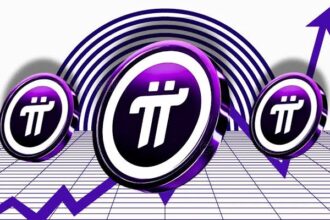



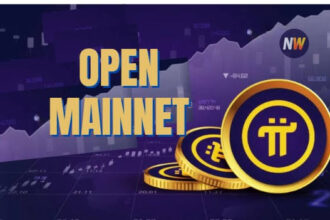

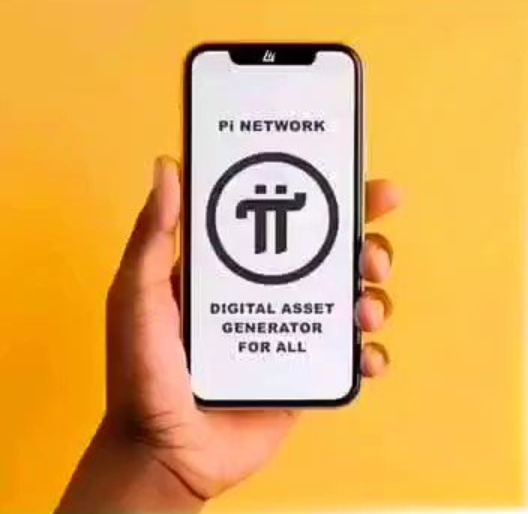


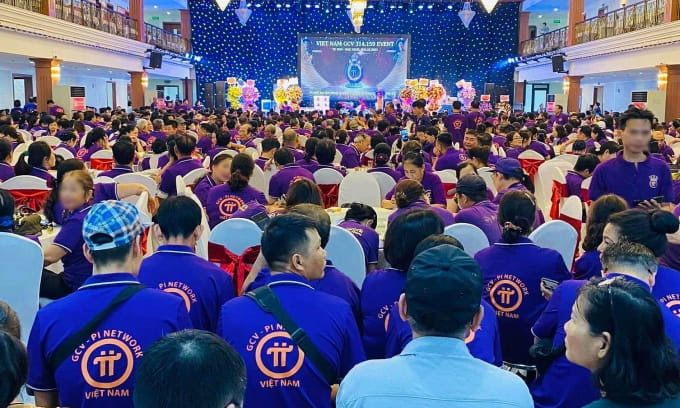


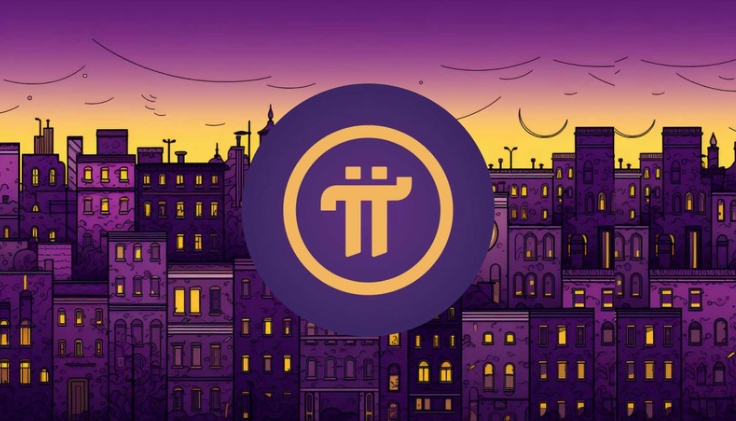

I am sending you 1π! Pi is a new digital currency developed by Stanford PhDs, with over 47 million members worldwide. To claim your Pi, follow this link https://minepi.com/daiv101 and use my username (daiv101) as your invitation code.
Pi is a new digital currency developed by Stanford PhDs, with over 47 million members worldwide.
I am sending you 1π!
To claim your Pi, follow this link
https://minepi.com/dreamtreats and
use my username (dreamtreats) as your invitation code
📌 Premium packages
📌 Lion Private Round
📌 1 GEM = 150 LION
🚀💰 Want to be rich with ATH? Here’s your roadmap from zero to hero in no time👇
1️⃣ Start by downloading the Athene app – your gateway to financial empowerment.
https://play.google.com/store/apps/details?id=network.athene.app
Refferal code. 61b3fbe999
2️⃣ Invite your friends to join Athene and let them ride the riches train too.
3️⃣ Mine free GEM and convert them into LION and ATH monthly. The more you mine, the more you earn!
4️⃣ Cash in on your ATH by converting it to USDT, then use it to unlock Premium packages to get more Booster.
5️⃣ Keep the momentum going! Use your ATH to burn for additional Booster, maximizing your returns.
4️⃣ + 5️⃣ 👉 After getting more Booster, more GEM will be mined every day.
👉 Get more GEM, and you will get more ATH and LION monthly.
6️⃣ Then, wait for ATH to hit major exchanges like Binance and OKX, skyrocketing its value.
Note:
📍You can save time by the way to paying money for Premium packages from the beginning.
📍When you are Premium member, you will have the opportunity to receive an additional 10,000 USDT monthly.
🚀 Together, we’re not just investors – we’re builders. Let’s work hand in hand to make ATH bigger and better.
💎 With ATH and LION leading the charge, we’re destined for the moon! Who’s ready to embark on this financial adventure? Let’s go!
Related news:
📌 Burn 900 ATH to get 9000% Booster
📌 Open ATH trading on Athene P2P at 09:00 UTC April 4,2024.
📌 Market Development Lead for Athene Network
📌 50,000.00 USDT rewards for April event
📌 Athene Online Shop will be launched in the next few days
📌 $5,150.00 in prizes for Top 30 Silver Leaderboard
➖➖➖
#ATH #Athene #Network #AtheneNetwork #BTC #Binance #Okx #P2P #GEM #OpenEx #OEX #everyone #Pi #ice #IceNetwork #Satoshi #NewMiningApp #PiNetwork #ReviveChain #Coretoshi #web3community #NFT #IVENetwork #revive #Core
OpenEx OEX Wallet
https://oex.to/d/1YtksPn